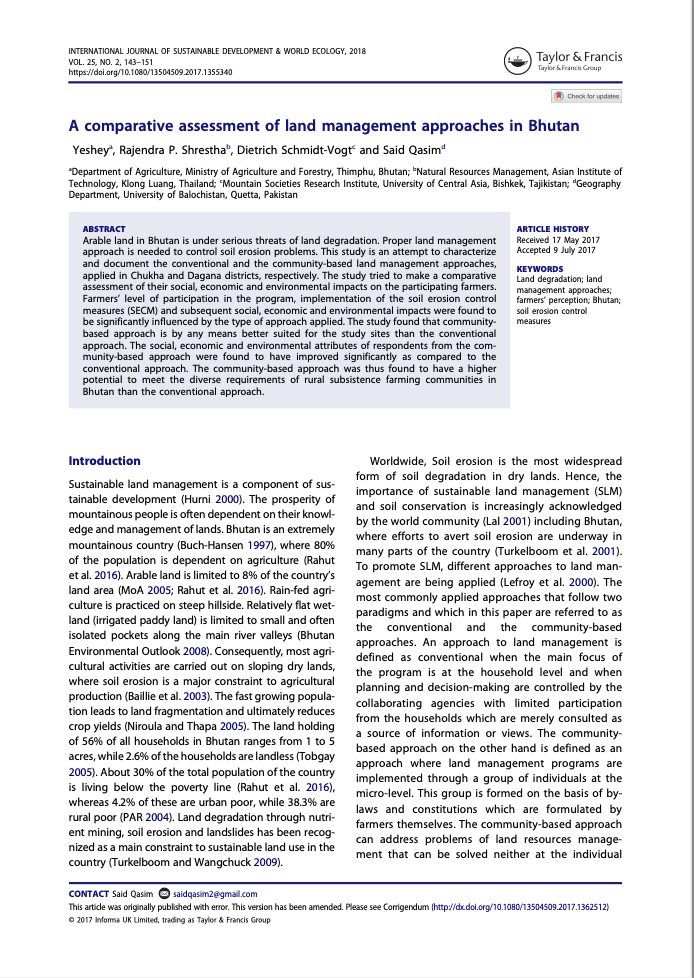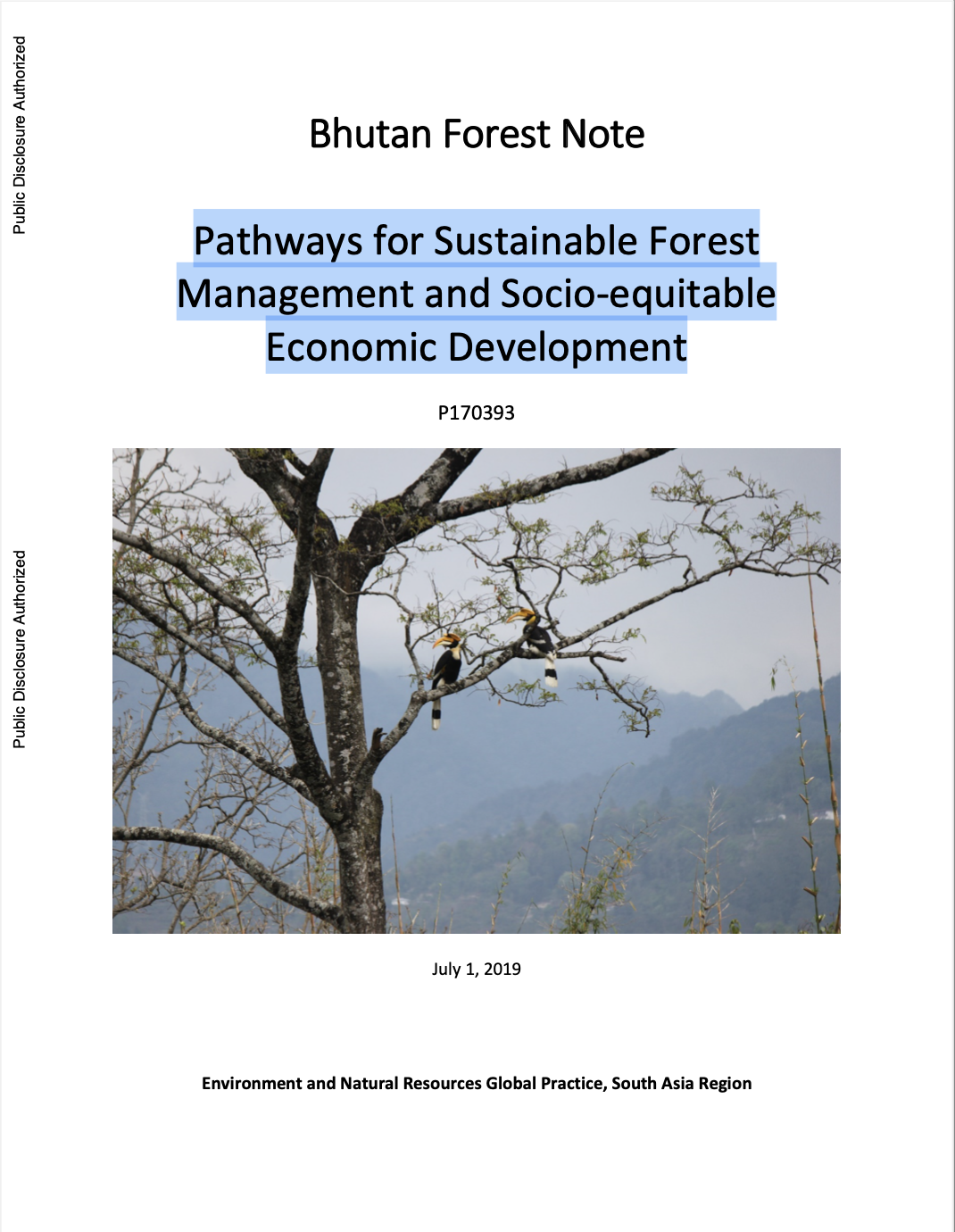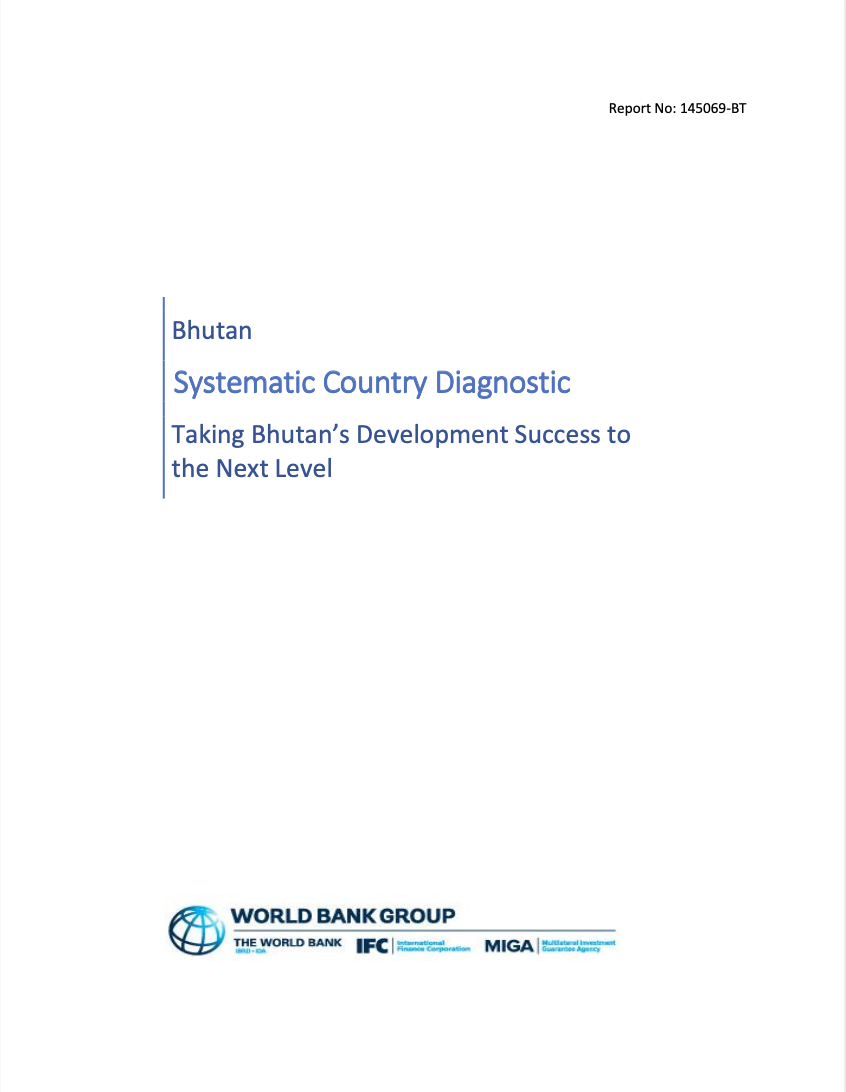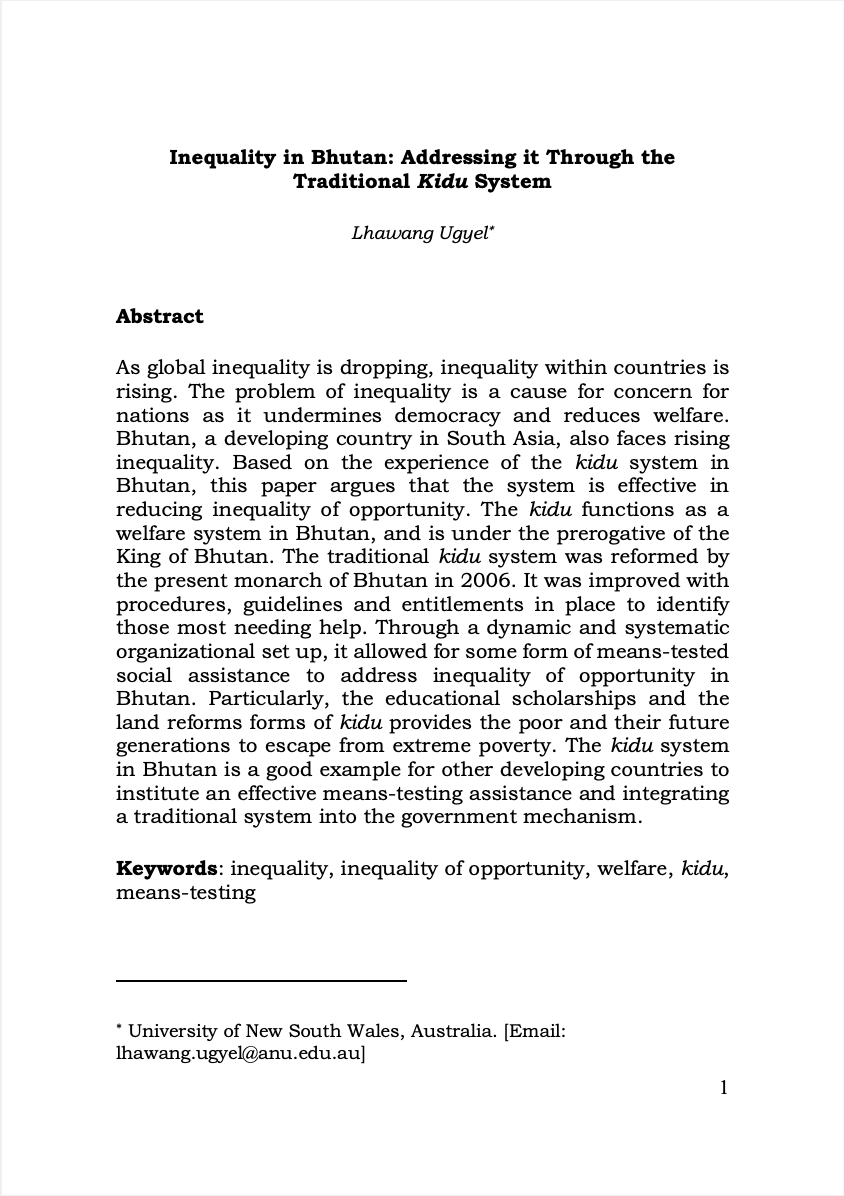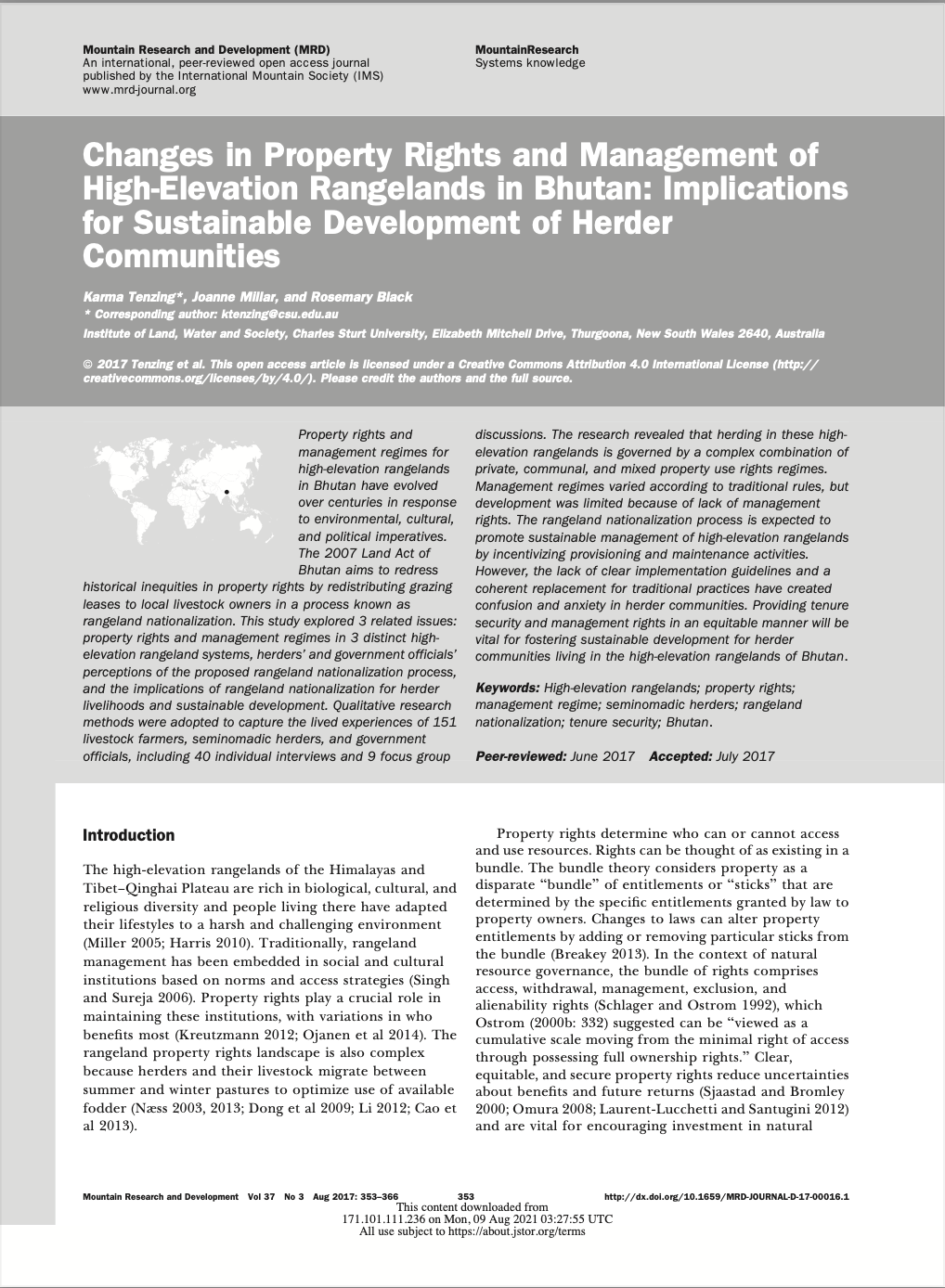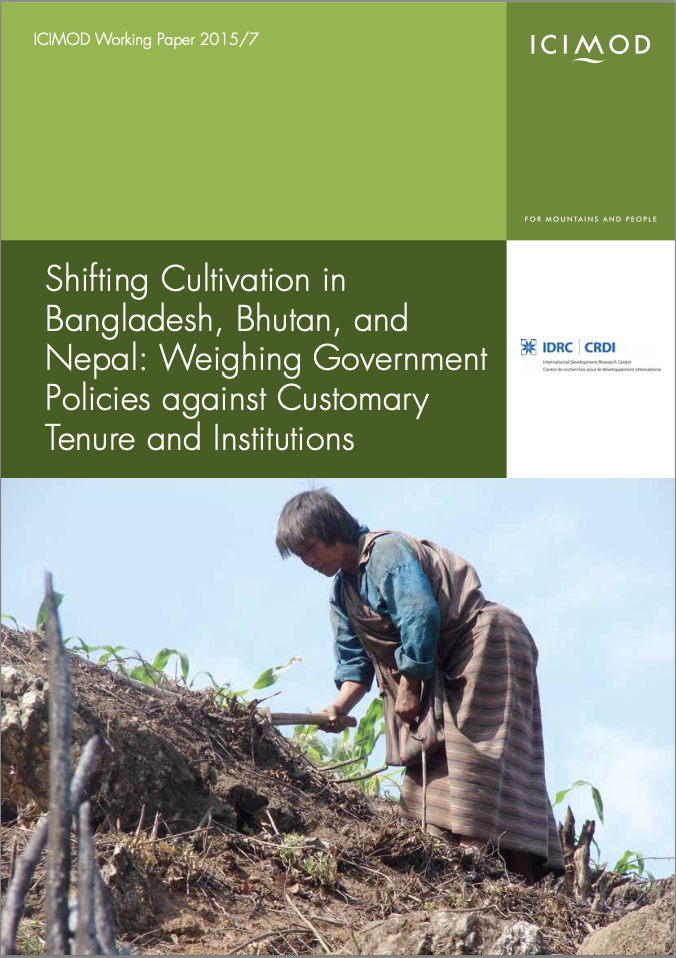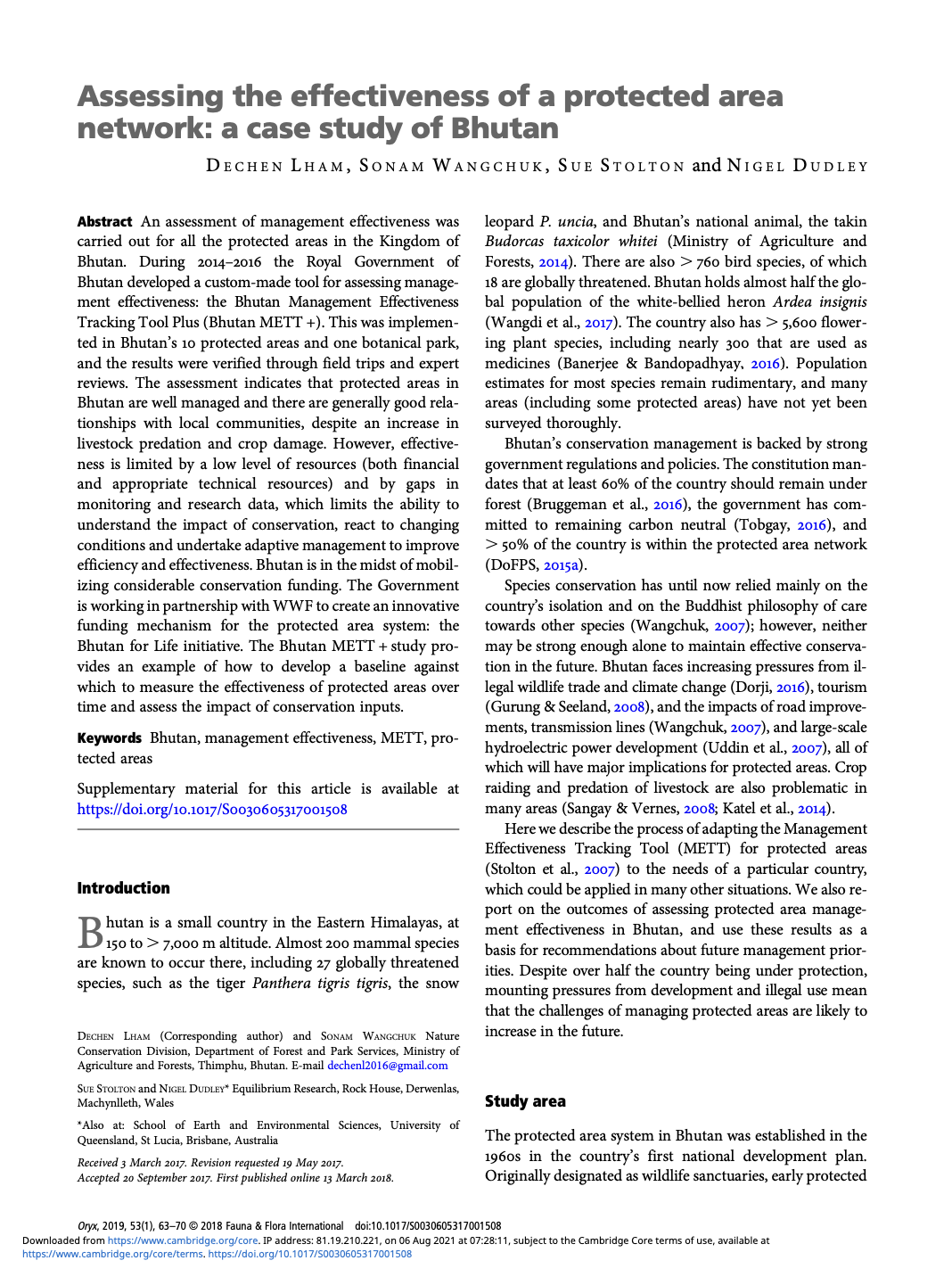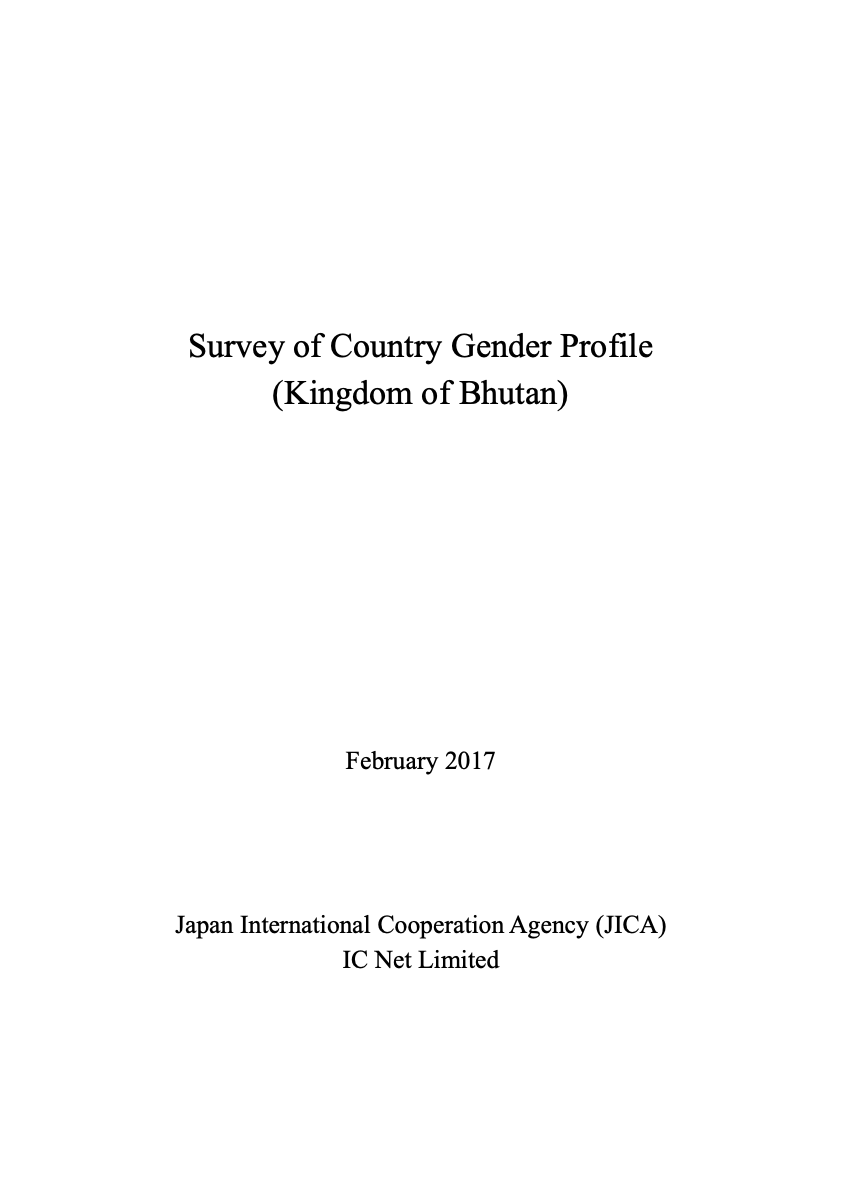
Topics and Regions
Daniel Hayward (UK) worked around Europe for 15 years as a dancer, choreographer and dance writer. Following retraining in sustainable development, he now works as an international development researcher, focused on land relations, agricultural value chains, gender, and migration. As well as working for Land Portal, Daniel is the project coordinator of the Mekong Land Research Forum at Chiang Mai University, and consultant for a variety of local and international NGOs and research institutes.
Details
Location
Contributions
Displaying 321 - 330 of 835A comparative assessment of land management approaches in Bhutan
Arable land in Bhutan is under serious threats of land degradation. Proper land management approach is needed to control soil erosion problems. This study is an attempt to characterize and document the conventional and the community-based land management approaches, applied in Chukha and Dagana districts, respectively. The study tried to make a comparative assessment of their social, economic and environmental impacts on the participating farmers.
Bhutan Forest Note
The Bhutan Forest Note articulates opportunities for supporting Bhutan's sustainable development aspirations, including its constitutional commitment to maintain at least 60 percent of the country's land area under forest cover and to better respond or prepare for vulnerabilities such as climate change and natural disasters. The note presents a forward-looking business case for Bhutan to support an increase in forest utilization without jeopardizing the integrity of forest and non-forest ecosystems.
Bhutan Systematic Country Diagnostic
Bhutan is a small, landlocked country deep in the eastern Himalayas between India and China. Over a horizontal distance of just 100-150 km, the elevation rises from about 150 meters above sea level in the south to over 7,000 meters in the north. The population of about 735,0001 is scattered across steep mountain slopes and valleys, many in remote and far-flung hamlets. This makes Bhutan one of the most sparsely populated countries in the world, ranked 182 out of 215 countries. Nearly half the land area is protected to help preserve biodiversity.
Inequality in Bhutan: Addressing it Through the Traditional Kidu System
As global inequality is dropping, inequality within countries is rising. The problem of inequality is a cause for concern for nations as it undermines democracy and reduces welfare. Bhutan, a developing country in South Asia, also faces rising inequality. Based on the experience of the kidu system in Bhutan, this paper argues that the system is effective in reducing inequality of opportunity. The kidu functions as a welfare system in Bhutan, and is under the prerogative of the King of Bhutan. The traditional kidu system was reformed by the present monarch of Bhutan in 2006.
Journal of Bhutan Studies
The Journal of Bhutan Studies (ISSN 1608-411X) is a twice-yearly publication of the Centre for Bhutan Studies, an autonomous research institute dedicated towards promoting research and scholarship on Bhutan. The institute is governed by the Council for the Centre of Bhutan Studies. The journal publishes scholarly research on the social, cultural and economic aspects of Bhutan.
Changes in Property Rights and Management of High-Elevation Rangelands in Bhutan: Implications for Sustainable Development of Herder Communities
Property rights and management regimes for high-elevation rangelands in Bhutan have evolved over centuries in response to environmental, cultural, and political imperatives. The 2007 Land Act of Bhutan aims to redress historical inequities in property rights by redistributing grazing leases to local livestock owners in a process known as rangeland nationalization.
Mountain Research and Development
The overall mission of Mountain Research and Development is to foster sustainable development in mountains by supporting peer-reviewed interdisciplinary, disciplinary, and transdisciplinary research on mountains, developing scientific capacity, capitalizing on development experiences, promoting policy dialogue, and strengthening networks within the mountain community. Mountain Research and Development (MRD) is devoted to mountains and their surrounding lowlands – ecoregions of particular global importance, in which communities are often marginalized.
Shifting Cultivation in Bangladesh, Bhutan, and Nepal: Weighing Government Policies against Customary Tenure and Institutions
Shifting cultivation is a dominant form of farming in the eastern Himalayas, practised by a diverse group of indigenous people from the most marginalized social and economic groups. The survival of these indigenous people and the survival of their forests are inextricably linked. However, policy makers and natural resource managers perceive shifting cultivation to be wasteful, destructive to forests, and unsustainable.
Assessing the effectiveness of a protected area network: a case study of Bhutan
An assessment of management effectiveness was carried out for all the protected areas in the Kingdom of Bhutan. During 2014-2016 the Royal Government of Bhutan developed a custom-made tool for assessing management effectiveness: the Bhutan Management Effectiveness Tracking Tool Plus (Bhutan METT +). This was implemented in Bhutan’s 10 protected areas and one botanical park, and the results were verified through field trips and expert reviews.
Survey of Country Gender Profile (Kingdom of Bhutan)
International aid communities have recognized women’s participation in development and the improvement of women’s status in the developing countries as a key issue since the 1960s, and the concept of “Women in Development (WID)” has been emphasised as a development agenda in the 1970s. In the 1980s, with the newly proposed concept of “Gender and Development (GAD)”, an effort for “gender mainstreaming” has been regarded as an effective mean for firmly practicing the GAD approach in the international community.

